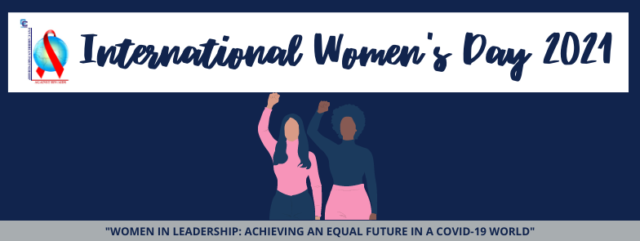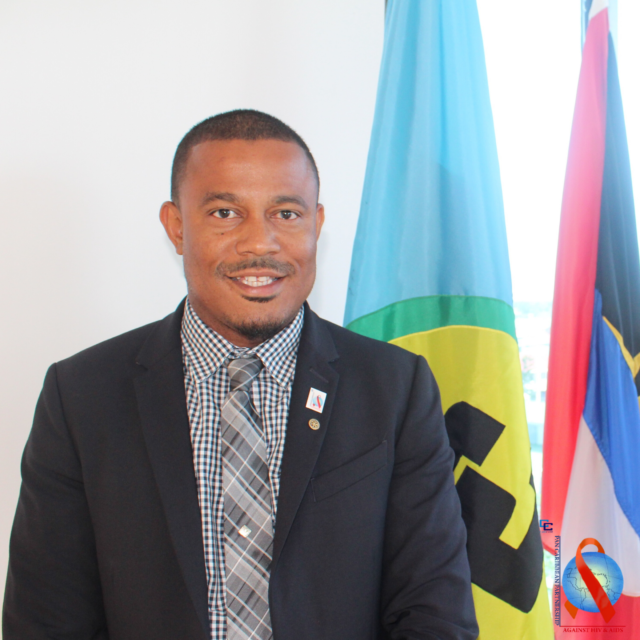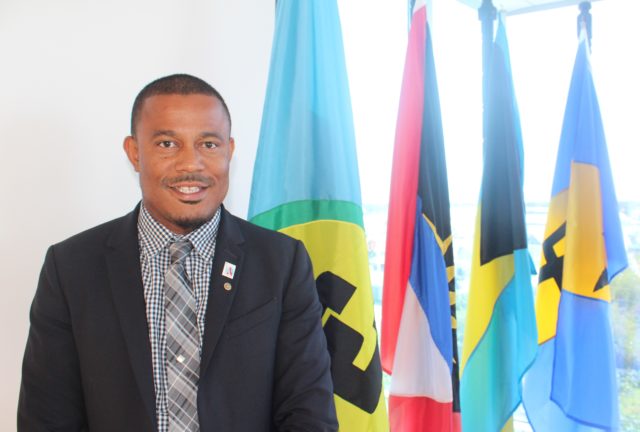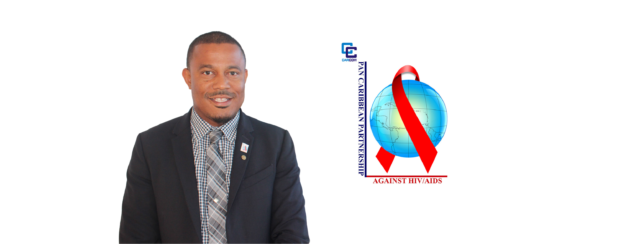“This International Women’s Day challenges us to reflect on women who have taken up extraordinary leadership roles during the
COVID-19 Pandemic. From the outstanding leadership of Mia Amor Mottley, Prime Minister of Barbados, who has been a pillar of the Region’s response to the Pandemic, to the single mother who has lost her job because of COVID-19. Women have persevered in the face of the Pandemic’s challenges.Women living with and affected by HIV have experienced particular hardships with the loss of income and reduced access to HIV prevention, treatment and care due to COVID-19 restrictions. The Region’s National AIDS programmes and Civil Society Organisations are to be applauded as they stepped up to ensure continuity of care. The Region has also noted an increase in gender-based violence due to lockdowns. I challenge our members and partners to support creating an enabling environment in which ALL women and girls are protected, valued and respected”. – Dr Rosmond Adams, Director, Pan Caribbean Partnership against HIV and AIDS (PANCAP)

#IWD2021 theme: “Women in leadership: Achieving an equal future in a COVID-19 world”
Women of the world want and deserve an equal future free from stigma, stereotypes and violence; a future that’s sustainable, peaceful, with equal rights and opportunities for all. To get us there, the world needs women at every table where decisions are being made.
This year, the theme for International Women’s Day (8 March), “Women in leadership: Achieving an equal future in a COVID-19 world,” celebrates the tremendous efforts by women and girls around the world in shaping a more equal future and recovery from the COVID-19 pandemic and highlights the gaps that remain.
Women’s full and effective participation and leadership in of all areas of life drives progress for everyone. Yet, women are still underrepresented in public life and decision-making, as revealed in the UN Secretary-General’s recent report. Women are Heads of State or Government in 22 countries, and only 24.9 per cent of national parliamentarians are women. At the current rate of progress, gender equality among Heads of Government will take another 130 years.
Women are also at the forefront of the battle against COVID-19, as front-line and health sector workers, as scientists, doctors and caregivers, yet they get paid 11 per cent less globally than their male counterparts. An analysis of COVID-19 task teams from 87 countries found only 3.5 per cent of them had gender parity.
When women lead, we see positive results. Some of the most efficient and exemplary responses to the COVID-19 pandemic were led by women. And women, especially young women, are at the forefront of diverse and inclusive movements online and on the streets for social justice, climate change and equality in all parts of the world. Yet, women under 30 are less than 1 per cent of parliamentarians worldwide.
This is why, this year’s International Women’s Day is a rallying cry for Generation Equality, to act for an equal future for all. The Generation Equality Forum, the most important convening for gender equality investment and actions, kicks off in Mexico City from 29 – 31 March and culminates in Paris in June 2021. It will draw leaders, visionaries, and activists from around the world, safely on a virtual platform, to push for transformative and lasting change for generations to come. – UN Women




